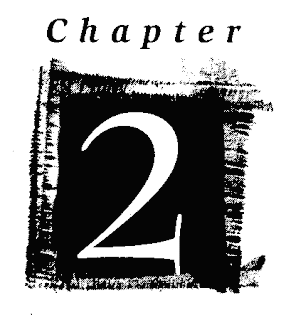CHAPTER THREE
Memorial Day, 11:15 a.m.
“What the hell do you mean you don’t know which one it is?” Warden Ponder shouted. “That’s why we got mugshots, and the fuckin’ inmate IDs.”
Captain Sullivan ignored the shouting, and the profanity. Seated behind his tiny desk in his tiny office, he remained calm as he explained, “There wasn’t an ID on the body, and we can’t identify him without his head or his fingerprints.”
The warden ran both hands over his shaved head as he turned first to one wall and then the other, as if looking for a way out. “What about common sense stuff, Sully -- height, weight, distinguishing marks?”
The captain consulted some papers on his desk. “Gutierrez and de la Rosa were about the same size. They also had identical tattoos. They were in the same gang, so they had the same tats with the same body placement. Quite a coincidence, really.”
The warden stuck his index finger in Sully’s face. “First of all, there are no gangs here at Oakdale.”
The captain reflexively pulled his face away from the warden’s hand. “Sorry, sir. The inmates had the same former affiliations, so the same body art.”
Adding his middle finger to his pointer, the warden said, “Second, find his fuckin’ head.”
Sully nodded. “We’re looking, sir.”
The warden looked around for a chair to sit on in the captain’s office, and couldn’t find one. “Is there someplace I can sit, Sully?”
Sully stood, and rolled his chair from behind his desk. “Take my chair, sir.”
“I don’t want your fucking chair, Sully,” the warden complained. “I want one of my own. Don’t you keep a chair in here for visitors?”
“Uh, no sir,” Sully said. “The only visitors I usually get are inmates, and I don’t want them getting comfortable in here.”
The warden grunted, which might have been a grudging signal of approval. Warden Ponder wasn’t really accustomed to any environment besides his own well-appointed office. He almost never left his office, preferring to let his underlings do all the grunt work requiring actual contact with the inmate population. The rare occasions when he did leave his comfortable second floor suite were always to address some type of incompetence.
Still standing, the captain picked up his phone, pushed a button, and spoke into the mouthpiece. “Deshotel, bring me a chair in here. One of those padded ones from the safety classroom.” He hung up the phone, and looked up at the warden. “Chair’s on its way, sir.”
Warden Ponder looked up at Captain Sullivan, slightly annoyed that the man was so much taller than he was. Ponder was 5’ 10” and built like a linebacker. Sullivan was a lean man, at least 5 inches taller than the warden. “Christ Almighty, Sully,” Ponder said, “we got one fugitive and one corpse and we don’t know which is which. What about DNA? Get some blood from the corpse, and test it against the samples we got on file. We got DNA samples from every prisoner here, right?”
Captain Sullivan was silent for a moment. He bit his lower lip, then answered, “Uhm, not exactly, sir. Oakdale’s a little behind on the DNA collection policy. We got samples from all the sex offenders, but the drug offenders were a low priority. So, no. No DNA samples on these two.”
Warden Ponder’s voice became a menacing whisper. “You’re shittin’ me.”
“Sorry, Warden,” Sully said. “Wish I was. But at least we’re not facing any penalties from Region, or the national office. The BOP’s letting us slide a little. They say we’ve got until the end of the year to complete DNA collection on the whole inmate population.”
Barely holding back the urge to scream, Ponder said, “What good does that do me right fucking now?”
A short, stocky officer pushed open the captain’s office door without knocking. He rolled a chair in on its casters, then left the office as abruptly as he had entered.
Ponder kicked the chair, knocking it against the wall. “What a clusterfuck. Don’t you have any good news for me at all?”
Sully stood awkwardly behind his desk, wishing he could sit, but knowing he had to remain standing as long as the warden was refusing to sit. He said, “U.S. Marshals should be here soon. And the FBI. And Region’s sending some people. So, this shouldn’t be your headache much longer.”
“What part of that sounds like good news?” the Warden demanded. “My replacement will probably be here by the end of the day. Where’s the A.W.?”
“Local V.F.W.,” Sully answered. “They’re having their Memorial Day pancake breakfast. She helps out every year.”
“God bless the V.F.W.,” the warden said sourly. “They invite her to their little shindig every year. They never invite me, and I’m an actual by-God veteran of a foreign war. Does she know what’s going on here?”
“Don’t know, sir,” Sully said. “I doubt it. I certainly didn’t contact her. Chain of command and all. I thought you would call her in if you needed her.”
The warden turned to the door, glad to have an excuse for leaving. “I’m gonna call her. I need at least one person here who’s got their shit together.”
Sully stammered, “Sir, I know it looks bad right now…”
Warden Ponder spun around to face the captain. “Sully, if you know what’s good for you, for all of us, you’re gonna find out who this dead inmate is before any outsiders get here.”
“I’m doing my best, sir,” Sully said earnestly. “We all are.”
“That’s what I’m afraid of,” sighed the warden.








